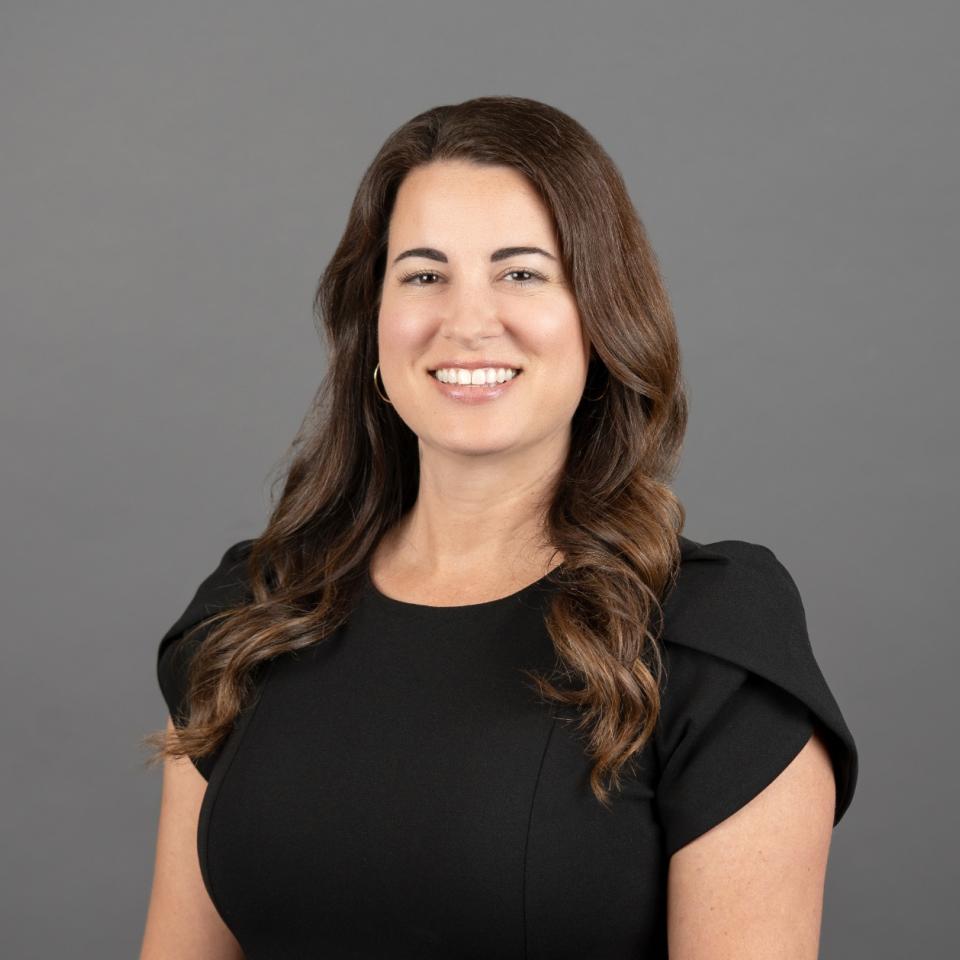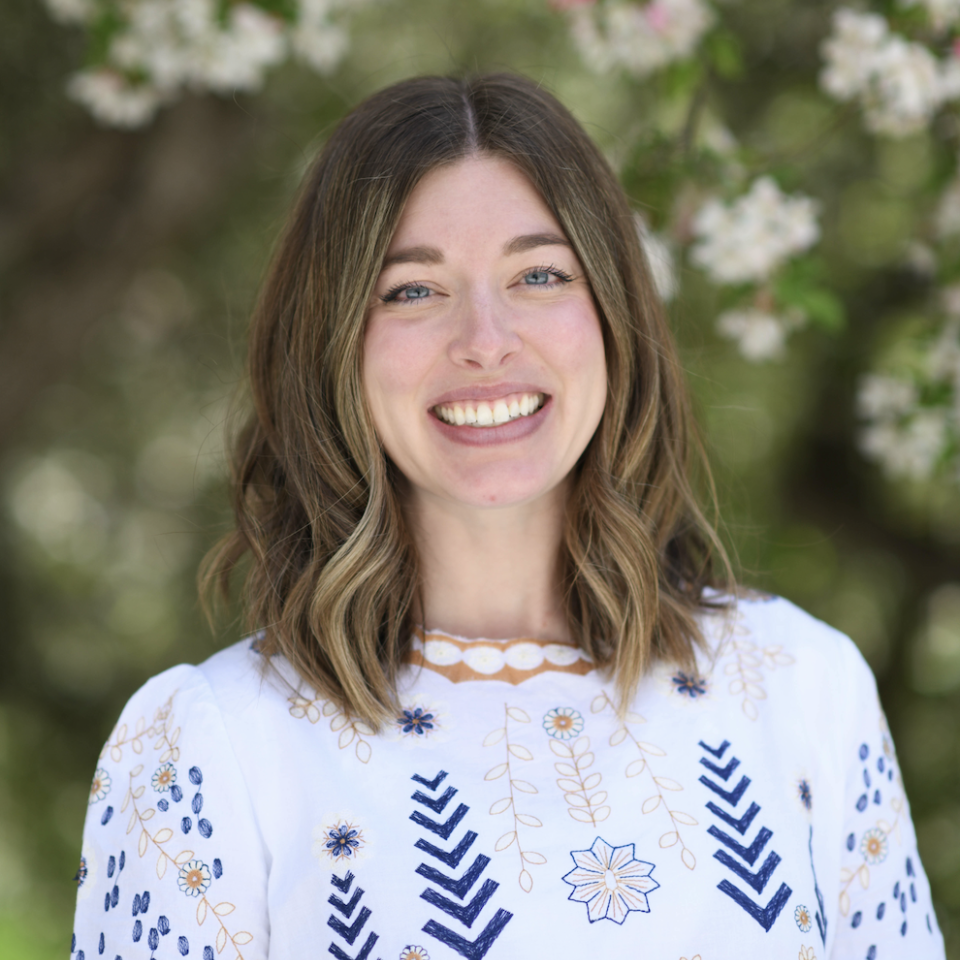Every student in the College of Nursing’s (CON) Doctor of Nursing Practice (DNP) program embarks on a journey of discovery and change through their scholarly project. These year-long initiatives bridge the gap between theory and practice, addressing real- world health care challenges to improve patient outcomes, refine care delivery, and influence health policy. Under the mentorship of CON faculty and in collaboration with project sponsors, students identify pressing clinical issues, design evidence-based solutions, and implement changes that leave a lasting impact.
From addressing social determinants of health to improving end-of-life care, these projects exemplify how DNP students transform the practice of nursing—not just in their local communities, but across health systems.

I was really focused on, 'how can I make sure that they're receiving better care fast?'
TACKLING BARRIERS TO SPANISH-LANGUAGE CARE
For Erica Nelson, DNP, a certified nurse-midwife and women’s health nurse practitioner, the gap in language services for Spanish-speaking patients in her Utah County clinic was impossible to ignore. Patients struggled to access quality care due to the lack of Spanish- speaking providers and professional interpreters.
“I was really focused on, ‘how can I make sure that they’re receiving better care fast?’” Nelson recalls.
Her DNP project brought swift and meaningful changes. She implemented workflows that ensured patients could be matched with Spanish-speaking providers or interpreters, translated 31 essential handouts, and improved clinic processes. The results were immediate: more Spanish-speaking patients sought care, and providers reported feeling more effective and confident in serving this population.
CREATING CALMING ENVIRONMENTS IN PSYCHIATRIC CARE
Steve Baker, DNP, a psychiatric- mental health nurse practitioner, took on one of the most challenging issues in mental health care: treating adults with severe autism and developmental disabilities. In his work at University of Utah Hospital’s psychiatric unit, patients often became agitated in environments that failed to meet their sensory needs, leading to aggressive behaviors, staff injuries, and burnout.
For his DNP project, Baker introduced portable sensory rooms designed to de-escalate these situations. Featuring tools like a night sky projector, sound machine, and plush rug, these rooms created calming spaces tailored to patients’ unique needs.
“It wasn’t about treating symptoms; it was about creating an environment where those symptoms didn’t arise,” explains Baker’s faculty advisor, Sara Webb, DNP.
The impact was profound. The unit saw a sharp decline in the use of restraints, seclusion, and forced medication. Patients experienced more peace, and staff found their work environment safer and more rewarding.
HONORING LIVES THROUGH END-OF-LIFE CARE
In the emotionally intense setting of an oncology intensive care unit (ICU), patient deaths can weigh heavily on both families and health care providers. Meagan Gallagher, DNP, a resource nurse, wanted to explore how to make these moments more meaningful for everyone involved.
Her DNP project focused on implementing the 3 Wishes Project in the Huntsman Cancer Institute ICU. This initiative empowers health care teams to grant dying patients simple but profound wishes, such as creating keepsakes like “heartbeat in a bottle” or arranging special moments with family.
“By dignifying death, we’re also celebrating life,” Gallagher says.
The project not only enhanced the end-of-life experience for patients and their loved ones but also revitalized ICU staff. Nurses reported improved morale and a deeper connection to their work.
INTEGRATING COMMUNITY HEALTH WORKERS FOR GERIATRIC PATIENTS
Older adults face unique challenges when it comes to social determinants of health, from transportation barriers to food insecurity. Amanda Keddington, DNP, who specialized in organizational leadership as a student, saw an opportunity to bridge the gap in care at Intermountain Health’s geriatric clinics.
“Community health workers are uniquely positioned to address these issues,” Keddington says. “They speak the language, know the culture, and understand the barriers these populations face.”
Her project assessed the clinics’ existing efforts to identify patients’ social needs and proposed integrating community health workers (CHWs) directly into care teams. The result? A clearer path forward to meet patients’ needs and improve their overall well-being. Keddington’s findings have already influenced how these clinics deliver patient care and social support.

Community health workers are uniquely positioned to address these issues. They speak the language, know the culture, and understand the barriers these populations face.
Featured in this article


